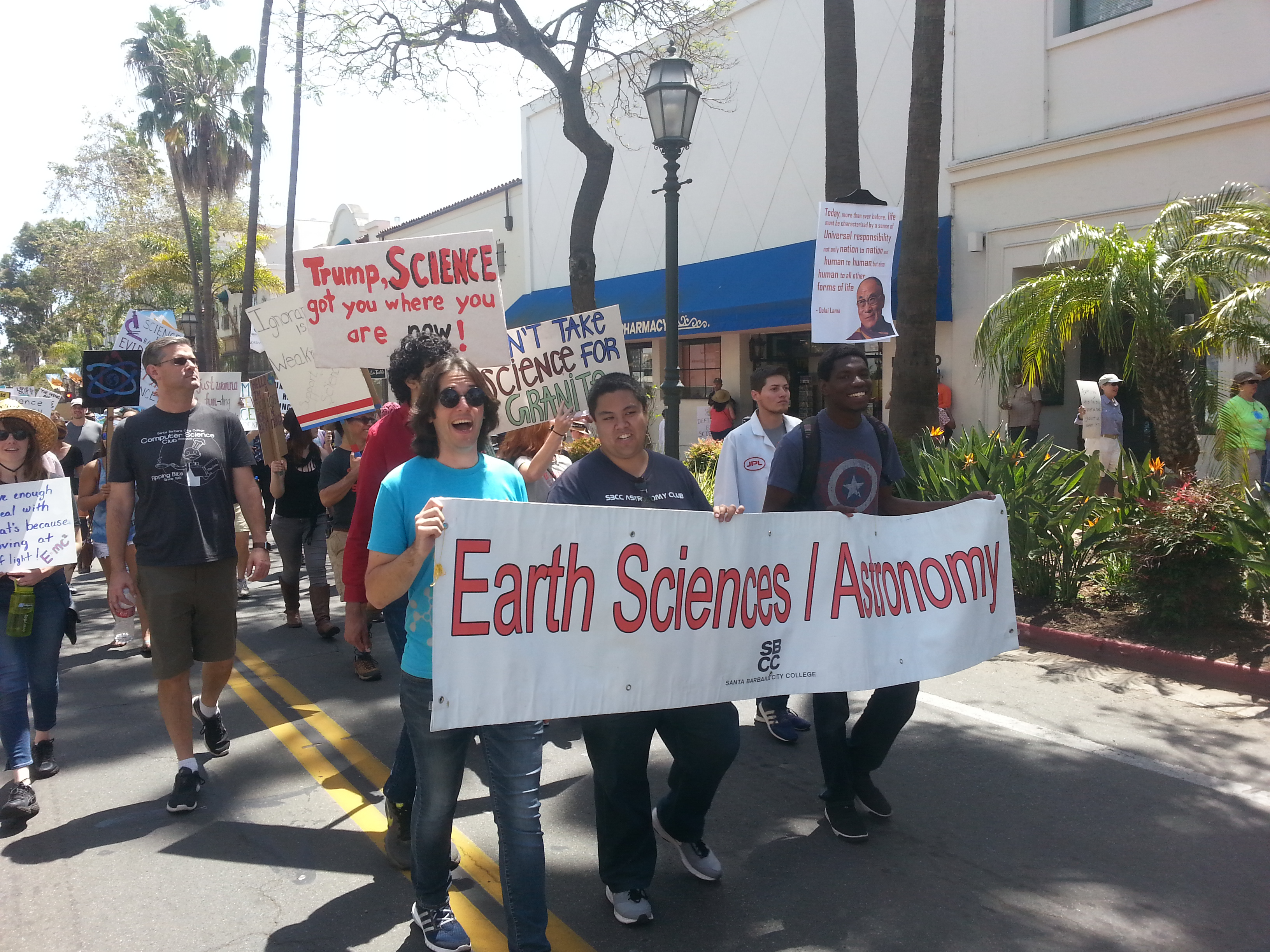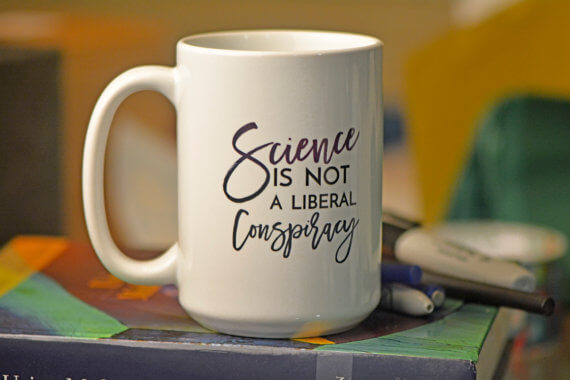Science Marginalized By Intense Political Pressure, Lab-Coated PhDs Fight Back with Equal Ferocity

As it happens, 2017 was an amazing year in a great number of respects: the solar eclipse, the detection of two neutron stars colliding 130 million years ago, and the emergence of “superbugs,” i.e., bacteria that are resistant, and in some cases impervious to antibiotics.
Of course, it’s hard to overlook the drubbing that climate science took in the U.S. this year, in particular, the purging of academic scientists from the Environment Protection Agency, making room for their replacement with corporate science advisers, i.e., people with specific economic interests and agendas.
One of those purged scientists, Deborah Swackhamer from the University of Minnesota, told PBS: It almost feels like this is the first of a wave of potential actions that are going to further marginalize science advice, and therefore marginalize the science being done at EPA, marginalize the science being done in other government agencies, and then ultimately just there is going to be this very slow-motion snowball effect.
Also from the interview:
In April, there was a very significant coral bleaching event in the Great Barrier Reef in Australia that scientists said had clear-cut signs that climate change was a factor. Warm water affects the coral in very significant ways.
And then, in July, one of the biggest icebergs ever seen was created. The Larsen Ice Sea Shelf fell off of Antarctica into the sea. Glaciologist Kelly Brunt gave us some perspective on that: “Losing ice that represents roughly the state of Rhode Island in a month-and-a-half just far exceeded anybody’s expectations of what could happen and the time scale that it could happen in. This was absolutely a wake-up call.”
Uncharacteristically, the scientific community literally took to the streets. in the so-called “March for Science,” an estimated 1.07 million people in over 600 cities around the world protested the Trump administration’s views on climate change and science, and the misrepresentation and exclusion of scientific knowledge in policy decisions. (Santa Barbara contributed about 6000 to that total, including 2GreenEnergy’s editor, who gets the photo credit for the pic above.)
It’s hard to know what 2018 will bring, but one component is easy to predict: scientists won’t be sitting around watching the planet burn.


The current administration has battled historically low popularity from the beginning, but recent events seem to have eroded his support further, according to a Fox News poll conducted a couple of months ago. Nine months into his presidency, just 38 percent of voters approve of the president, a new low in surveys conducted by Fox.
Fewer than three in 10 Americans — 29% — hold a favorable view of the Republican Party according to a new CNN poll conducted by SSRS. That is down 13 percentage points from March and is the lowest mark for the GOP since CNN began asking the question in 1992.
The previous low point for the GOP was 30% — hit twice — in October 2013 following the federal government shutdown over President Barack Obama’s health care law, and December 1998, in the wake of the House of Representatives approving two articles of impeachment against then President Bill Clinton.
Republicans are signaling they prefer President Donald Trump’s vision for the party, with 79% saying he is taking it in the right direction. A majority of GOP voters — 53% — believe Republican leaders in Congress are taking the party in the wrong direction.
That finding comes as approval ratings and favorability ratings for Republican leaders in Congress have dropped.
Overall approval of the party’s leadership is down to 20%, a new low in CNN polling back to 2008. That includes just 39% of Republicans who approve of the job GOP leaders are doing.
House Speaker Paul Ryan’s favorability has dipped to 32%, a six-point drop since April, while Senate Majority Leader Mitch McConnell stands at 20% favorability, a seven-point dip since spring.
Though scientists aren’t very good at winning popularity contests, we might take a little comfort that their opposition is far worse.
People like Paul Ryan face no-win situations, not that I feel sorry for them in the least. Either they do the right thing and get voted out of office because their billionaire donors withdraw support, or they vote for the tax scam to make their donors happy, only to get voted out of office because 70% of their constituents hate their guts. In either case, buh-bye!